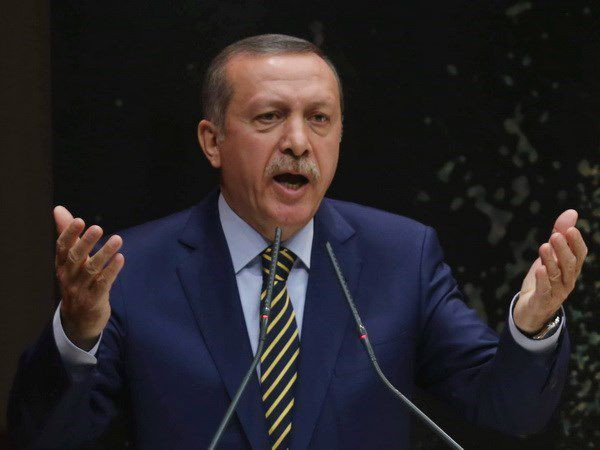Turkish parliamentary elections: A heavy blow to the ruling party
(Baonghean) - According to the results of more than 99% of the votes in the general election on June 7, as predicted by analysts but contrary to the expectations of Turkish President Tayyip Erdogan, the ruling Justice and Development Party (AKP) despite winning the highest percentage of votes lost its majority in the National Assembly. This result is a heavy blow to the ruling party's platform that has existed for the past 13 years, as well as the ambition to gain more power that President Erdogan is cherishing.
For the first time in 13 years in power, President Recep Tayyip Erdogan's Justice and Development Party (AKP) has failed to win a majority in parliament. With more than 99% of the votes counted in the general election on June 7, it is expected that with 258 seats won - equivalent to 41% of the votes, Mr. Erdogan will not be able to form a one-party government as in previous elections. Not only that, the number of votes for this party this year has decreased by 10% compared to the previous election in 2011. Meanwhile, the pro-Kurdish People's Democratic Party (HDP) has for the first time achieved a spectacular result of 25% of the votes, overcoming the 10% threshold needed to gain representation as an opposition party in parliament.
 |
| Turkish President Tayyip Erdogan. Source: Internet |
In fact, according to analysts, the People's Democratic Party (HDP) was able to win so many votes in a pre-planned manner. In order to oppose President Erdogan's recent policies that are considered wrong, opposition parties in Turkey have sought to unite and gather votes for the HDP, thereby reducing voters' support for the Justice and Development Party. A series of issues such as authoritarian policies, corruption cover-up, or waste in the construction of the presidential palace have been focused by opposition parties on President Erdogan.
Not only domestic issues, the foreign policy of Mr. Erdogan and the ruling Justice and Development Party has also been heavily criticized recently. Accordingly, the Erdogan administration is accused of pursuing a sectarian policy in the region, when supporting the Sunni Islam in Iraq and Yemen; at the same time, worsening relations with Iran and Syria. Along with showing hostility towards Egyptian President Al-Sisi, Mr. Erdogan is said to be causing Türkiye to increasingly distance itself from its traditional Western partners and allies as well as the region and the world.
For Turkish voters, in fact, in recent years, the people's support for President Erdogan's government has also decreased rapidly. Especially last year, when the corruption scandal was exposed, involving many high-ranking officials, including Erdogan's son when he was Prime Minister. Not only that, the declining economy is also the reason why people no longer have as much trust in the government as before. Thus, the preliminary results announced clearly show the people's reaction to the strategy of the ruling party as well as President Erdogan himself. It can also be understood that Turkish voters have officially rejected President Erdogan's plan to amend the constitution, aiming to convert from a parliamentary system to a presidential system with power concentrated mostly in the hands of the head of state.
The election results also show that not only is it impossible to achieve the plan to win two-thirds of the 550 seats in parliament, but Mr. Erdogan's Justice and Development Party will even have to prepare to form a coalition government for the first time since taking power in 2002, or form a temporary minority government and move towards early elections. At this time, perhaps President Tayyip Erdogan, after 13 years in power, needs more than ever to review his entire policy of governing the country, which has not been supported by both the people and the factions. And if he does not want the thorny political path ahead to be filled with more difficulties, caution and harmonious adjustment of domestic and foreign policies are extremely necessary. At that time, not only will President Erdogan's position be maintained, but Türkiye's image and position in the region can be restored.
Phuong Hoa
